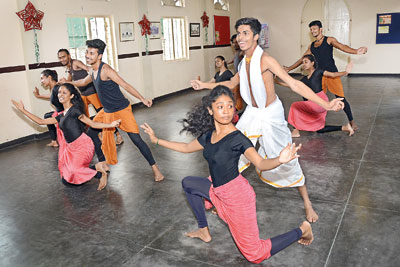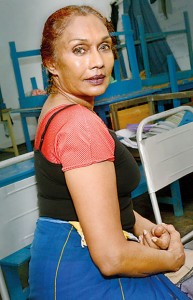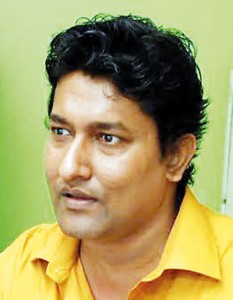Something to dance about
 On World Theatre Day, which falls on March 27, 38 students will explore the prevalence of suicide among Sri Lankan youth in a production titled ‘Why we kill ourselves’. Through the ancient and traditional dance, music and drama forms found in our island, the production will take us through the life of these troubled young adults, from birth to their tragically early death. The production consists of a combination of classical and folk Sinhalese and Tamil songs and dances, seamlessly fused to one another.
On World Theatre Day, which falls on March 27, 38 students will explore the prevalence of suicide among Sri Lankan youth in a production titled ‘Why we kill ourselves’. Through the ancient and traditional dance, music and drama forms found in our island, the production will take us through the life of these troubled young adults, from birth to their tragically early death. The production consists of a combination of classical and folk Sinhalese and Tamil songs and dances, seamlessly fused to one another.
Directed and scripted by Dharmajith Punarjeeva and arranged by musical director Ranjith Balasuriya, this production is the culmination of a six-month programme that was initiated with the help of Chairman of the Metropolis project, Ajith de Costa and his wife, the dancer Khema De Silva. The programme targeted students who had passed their Advanced Level Examinations, but had unfortunately missed out on entering the state universities by a few marks. Over 300 students, from various ethnic backgrounds, and from all over the island auditioned and 50 were selected.
Each year, thousands of youths leave their homes and venture into the big cities and towns in pursuit of higher education or employment. But away from home and with no support system, the pain of broken affairs and mental breakdowns can lead these youths to take drastic steps explains Dharmajith Punarjeeva. “In 2016 over 30 young persons committed suicide by jumping in front of the trains,” he tells us. These statistics left him questioning.
Under the programme students are taught music, dance, and drama by the gurus five days a week. Taken through an interdisciplinary course, they were taught all art forms culturally Sinhalese or Tamil, regardless of their own ethnicity. The objective of the project was three-pronged – to uplift students who may have been disheartened by not gaining entry into state universities; to give those interested in the crafts the necessary skills to pursue it professionally; and finally to foster reconciliation between communities.

Khema de Silva
But it hasn’t exactly been a smooth run. Initially envisioned as a government backed project the programme commenced at the Ape Gama theatre in Battaramulla, but, as the project did not fall within the purview of the Education Ministry, the facility was withdrawn. Undeterred by this, Ajith De Costa and Khema De Silva rented out the hall of St. Mathew’s Church in Battaramulla, paid for through personal funds, and continued the programme. The couple also sponsor a monthly allowance for each student for their food, lodging and transport needs. Despite this, several students, coming from economically disadvantaged backgrounds, have been compelled to leave and seek employment in order to finance their families back home.
Initially the students were also hampered by the language barrier. But bonded by their desire to learn and their passion for the arts, the students who would have otherwise never met each other, have managed to communicate, understand, and cooperate with other which has culminated in this inclusive and inspiring production.
Dharmajith Punarjeeva and Ranjith Balasuriya tell us that they are satisfied with how it has turned out, but hope that they will receive assistance from the government and donors to carry out similar programmes to both preserve the arts and help students.
The production will take place on March 27 at the Ape Gama Theatre in Battaramulla from 6 p.m. and is open to the public free of charge. As part of the celebrations to commemorate World Theatre Day, the day will also feature productions in the classical drama forms of ‘Nadagama’ and ‘ Nurthi’ , as well as a Tamil language based play. A book on the Performing Arts in Sri Lanka by Dharmajith Punarjeeva will be released at the event.

Director Dharmajith Punarjeeva


